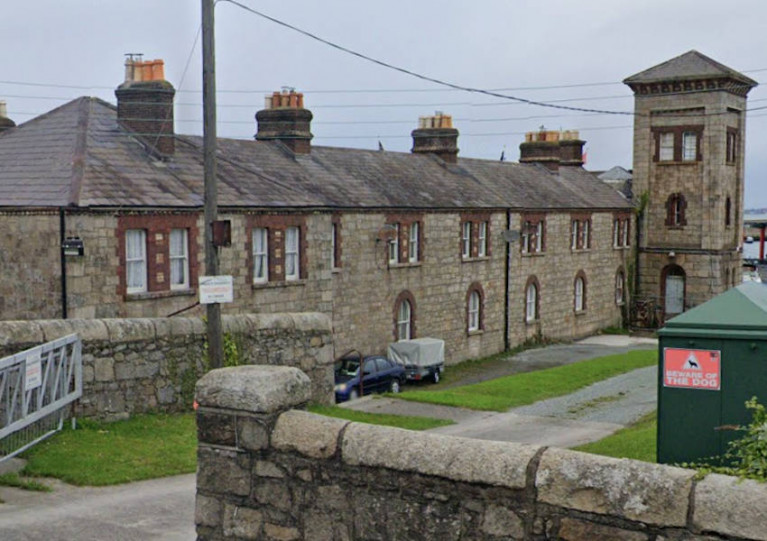Displaying items by tag: Coastguard Cottages
Former Coastguard Cottages in Crosshaven to Be Converted for Social Housing
A number of derelict coastguard cottages in Crosshaven are to be converted into social housing, as the Irish Examiner reports.
Plans for 24 social housing units at the central location overlooking Cork Harbour echo those for Dun Laoghaire’s own former coastguard cottages approved last year.
A total 12 one-bed and 12 three-bed units will be developed at what had become an eyesore at the gateway to Crosshaven village.
 The Crosshaven Coastguard cottages are facing the Royal Cork Yacht Club and its marina at the top of the above photo and pictured at the bottoon of the drawing below. Crosshaven Garda station is the white cottage on left. The proposed new builds will be in the green area behind the cottages. The Crosshaven Coastguard Building is pictured in the foreground behind the cottages. Photo: Bob Bateman
The Crosshaven Coastguard cottages are facing the Royal Cork Yacht Club and its marina at the top of the above photo and pictured at the bottoon of the drawing below. Crosshaven Garda station is the white cottage on left. The proposed new builds will be in the green area behind the cottages. The Crosshaven Coastguard Building is pictured in the foreground behind the cottages. Photo: Bob Bateman

In addition, seven existing residences on the site will be turned into two-bed units by Cork County Council, who voted to approve the project recently.
The Irish Examiner has more on the story HERE.
DLRCoCo Aims to Restore Harbour’s Coastguard Cottages as Social Housing
Plans to restore Dun Laoghaire Harbour’s Coastguard Cottages for social housing are among the local authority’s list of goals and achievements throughout what’s been a tumultuous 2020.
Most recently restored in 2014 and occupied by the combined Dun Laoghaire Waterfront Clubs, the four unoccupied cottages adjacent to the Commissioners of Irish Lights headquarters date from the mid-1800s.
Dun Laoghaire-Rathdown County Council has confirmed in its 2021 budget report that its architects and Housing Department are looking at plans to renovate the buildings as social homes (see page 104).
This is among other works on the waterfront, including an engineering survey of the West Pier that’s expected to commence before the end of the year.
Other achievements highlighted for the year include works to realign steps on the East Pier, restoration of ratings and the lighthouse on the West Pier, revitalised seating on the ferry terminal plaza and an ongoing repair project on the timber fenders at Berth 4.
























































